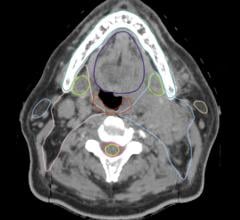
August 17, 2016 — Colorectal cancer patient advocacy groups, the American College of Radiology (ACR) and associated medical associations are calling on the Centers for Medicare & Medicaid Services (CMS) to cover seniors for virtual colonoscopy, known as computed tomography (CT) colonography. The groups asked CMS to open a national coverage determination for this American Cancer Society-recommended screening exam. Studies in the United States and abroad show that virtual colonoscopy increases screening rates, which can save lives, and lowers costs.
Recent United States Preventive Services Task Force (USPSTF) colorectal cancer (CRC) screening recommendations assigned its highest rating, an “A” grade, to colorectal cancer screening, including virtual colonoscopy and other tests. Under the Affordable Care Act, this “A” rating would require insurers that take part in insurance exchanges to cover virtual colonoscopy without patient cost sharing. Medicare should cover seniors for these exams as well, emphasize the groups’ representatives.
“The best colorectal cancer screening exam is the one that a person chooses to use. Too many Americans are dying from a largely preventable disease that can almost always be treated if found early. Medicare coverage of virtual colonoscopy would ensure access to a proven screening method for those who cannot, or will not, have an optical colonoscopy. This will save lives,” said Eric Hargis, public policy adviser for the Colon Cancer Alliance.
Virtual colonoscopy has been proven comparably accurate to optical colonoscopy in most people of screening age — including those ages 65 and older. Less invasive than optical colonoscopy, virtual colonoscopy does not require sedation. After the exam, patients can return to daily activities.
“To increase screening rates among seniors, Medicare must cover innovative, lifesaving virtual colonoscopy. Seniors need more fully covered screening options that they are likely to use. Medicare coverage for virtual colonoscopy would be a major step forward in the battle against colorectal cancer,” said Anne Carlson, executive director of the Colon Cancer Coalition.
Colorectal cancer (CRC) screening rates are lower and CRC incidence and death rates higher among African-Americans. Only half of Latinos in the United States ages 50 and older get screened. In fact, U.S Latinos are more likely to die from colorectal cancer than those in many Central and South American countries. More screening options can reverse these trends.
“Colorectal cancer is one of the few cancers we can largely prevent if those who need to be screened choose to get tested. But to attract more people to get screened, we need more fully covered tests. Medicare coverage for virtual colonoscopy would jumpstart screening and reduce colorectal cancer deaths,” said Carolyn Aldigé, president and founder of the Prevent Cancer Foundation.
CIGNA, UnitedHealthcare, Anthem Blue Cross Blue Shield and other insurers already cover these exams. More than 20 states require insurers to cover virtual colonoscopy. A major study shows that screening Medicare patients with virtual colonoscopy would reduce CRC screening costs by 29 percent and save Medicare up to $1.7 billion per screening cycle. President Obama chose a virtual colonoscopy in his first checkup in office.
”Medicare coverage of CT colonography would remove a financial barrier to this screening option that can overcome cultural stigmas and attract more people to be screened. This would prevent many cancers, find more cancers before they progress and save thousands of lives each year from this terrible, but often preventable, disease,” said Judy Yee, M.D., chair of the American College of Radiology Colon Cancer Committee.
Colorectal cancer is the second leading cause of cancer death among men and women. According to the American Cancer Society, more than 134,000 people will develop colorectal cancer in 2016. More than 49,000 will die of the disease.
For more information: www.acr.org


 April 23, 2024
April 23, 2024 








